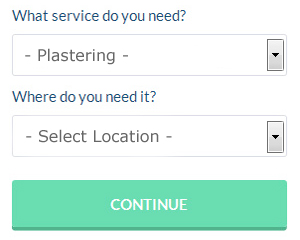Cross Roads Plasterers: When there's plastering work to be carried out on your home in Cross Roads, whether large or small, you should be calling on a competent and professional plasterer to execute this task. Plasterers can take several years to perfect their art, so plastering isn't really something you can do yourself.
Plastering work needs to be carried out on an array of home improvement assignments, even small ones. It might be plaster skimming a partition, re-plastering a ceiling, installing cornices or coving before decorating or screeding. Don't however imagine that the above are the only plastering jobs that may be needed, since there are a lot more possibilities.
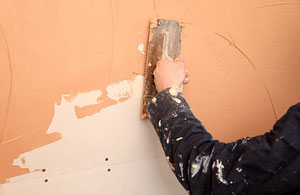
There are various means by which to check if prospective Cross Roads plasterers really know their stuff, one good approach is to ask for a portfolio of previous projects. You don't want to get landed with a team of "cowboys" messing up your plastering project. Inferior plastering is generally worse than no plastering at all, because it is very difficult to correct later on.
When your newly plastered wall is given a coat of emulsion, any imperfections will soon become noticeable. Such imperfections will be even more highlighted when viewed in bright sunshine. When you have the choice between experienced plasterers in Cross Roads and poor ones, always choose a competent one.
Being smooth and level is the most vital thing for plastered surfaces, since they are only a base upon which other materials are applied. Irregular plastering is hard to cover up, although little imperfections and cracking can easily be repaired later without any problems. A badly plastered surface will lead to severe issues with the fitting of kitchen units, the accurate fitting or skirting boards, the tiling of wall surfaces and the painting of ceilings and walls.

You can always tell experienced Cross Roads plasterers because they invariably get a polished finish, straight from the trowel. A quick rub down before decorating is all that a plastered ceiling or wall should need, it should never require sanding. If your finished plastering needs vigorous sanding, you can be pretty certain that it hasn't been done correctly. You should check the quality of the plastering thoroughly, if you see electric sanding machines being employed.
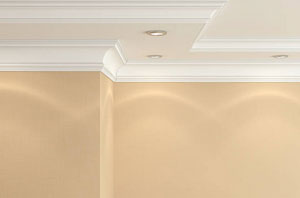
Plasterers perform many tasks but one of the most common in recent times, is plastering over artexed ceilings. Artex was at its height of popularity in Cross Roads during the 70's and 80's, but today it is not so much so. To make your old artexed ceiling look more fresh and contemporary, most plasterers in Cross Roads will jump at the chance to plaster over it. On the flip side, if you want to bring back that old style, most plasterers will just as gladly slap some artex onto your flat, featureless ceilings.
Do-it-Yourself Plastering Cross Roads: While it is usually better to hire a competent plasterer in Cross Roads when you've got plastering work that needs to be done in your home or business premises, it is quite possible to have a crack at doing it yourself if you are reasonably good at DIY, and have the confidence to tackle it. Doing a test run on an out-of-sight area or a spare bedroom is definitely a wise idea when you're starting out on your initial plastering journey. If at all possible try to pick a wall that's already got a poor quality plastered finish, so your early efforts can't make it any worse. This is likely to be much less stressful for you, and allow you to spend a bit of time trying out your newly acquired skills. It's possible to re-plaster a wall surface as many times as you wish to a certain extent, and you can simply have another crack if you do not do a great job at the first attempt.

If you're searching for a few tips and advice to to set you on your way, you could always watch some YouTube video tutorials. Or, if you are keen to learn plastering you might even look at signing up for a course at a local college or school. Like most "hands on" undertakings, the more you practice the more capable you get at plastering. You may even think up some of your own strategies for accomplishing that perfect plastered finish, nevertheless the tried and true methods are normally best. The more you do it the more confident you'll get, and in the final analysis - plastering is mostly about confidence. You can attempt some more advanced plastering work when you have mastered this art to a good standard. If the whole thing goes pear shaped and you bodge up the plastering, you can always contact a professional plasterer to smooth out your mistakes.
Decorative Plastering
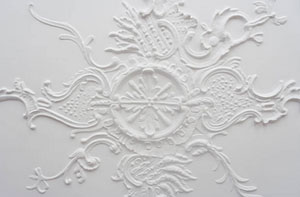
Forms of plastering have been utilized for both functional and decorative objectives since the days of the ancient Roman builders. The ingredients used would certainly have been different in those long forgotten days, when concoctions of mud and clay would have been employed. In London during the thirteenth Century, a form of plaster was put on the walls of structures to limit the spread of fires. Buildings of the Victorian and Georgian eras were extensively emblazoned with mouldings made out of gypsum. Talented plasterers today are able to produce spectacular effects by combining modern day materials with age-old techniques. This might include the application of cornice finishes, corbels, brackets, ceiling roses, coving, dentils and niches.
Pebble Dash
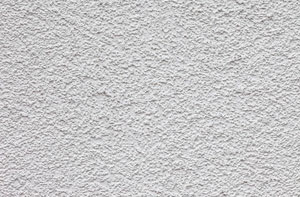
A method that is frequently used to protect and decorate the exteriors of properties, pebble dash is not everybody's cup of tea in Cross Roads. Plasterers will often do this type of work for you, however there are pebbledashing specialists around.
Pebble dash normally consists of two layers of a base made from lime and sand into which small gravel, pebbles or shells are pressed to give both new and renovated homes a tough, maintenance free and decorative surface finish. (Tags: Pebble Dashers Cross Roads, Pebble Dash Removal Cross Roads, Pebble Dashing Cross Roads, Pebble Dash Cross Roads)
Plasterboarding (Dry Lining) Cross Roads

Dry lining (plasterboarding) is frequently required in home improvement projects, and you should be able to find lots of plasterers in Cross Roads who are able to offer you this service. By mounting plasterboard onto a brickwork surface, a metal framework or a wooden studding, a stable wall surface is produced that doesn't need plastering. Whilst you may decorate the plasterboard surface itself after a bit of filling, normally most choose to have the plasterboard skimmed with a thin plaster coat afterwards to give it that extra special, smooth finish. In regards to fittings, when attaching to a metal frame self-drilling, self tapping (Jack-Point screws) are used, when fixing to a masonry or brick wall the "dot and dab" method is used and when attaching plasterboard to timber joists or studding, drywall screws or nails are used. (Tags: Plasterboarding Cross Roads, Dry Liners Cross Roads, Dry Lining Cross Roads)
Screeding Cross Roads
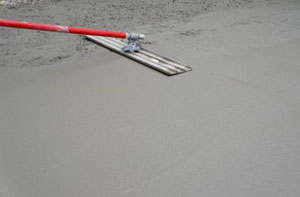
Screeding Cross Roads: Screeding calls for the pouring and spreading of a cement and sand mix, to make a level and smooth floor surface. Screed is usually put on top of a concrete sub-floor to encase underfloor heating pipes, to take on the final floor finish or to be left as a wearing floor surface. A properly laid screed can increase the life of the complete floor and assure its quality, durability and finish. A good quality screed pump needs to be used to swiftly guarantee a smooth, even mix of sand and cement and to pump this perfect mix directly to its required location, avoiding the use of wheelbarrows and similar paraphernalia. The hand mixing of screed should only be used where small areas are involved.
Artex
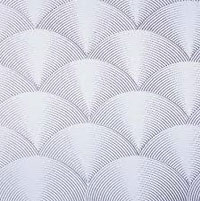
While most common in the Seventies and Eighties artex still is an excellent way to enhance the look of a ceiling, in particular a shabby or cracked one. While years ago you would find a lot of tradesmen who did very little else but artex and artex repairs, these days it isn't quite as simple to track down a plasterer who will take on artexing. With designs like medusa, pairs, circle, criss-cross, basket, broken leather, stipple, hook & line, scroll, swirl or bark, there was something for everybody. There was always an artex pattern to suit, irrespective of your personal taste. All of these artex designs can still be achieved today if you're able to find a local artexer or plumber prepared to do it. Stay away from "handyman" types who will just "have a bash". The main pitfall with artex, and one that brought about its fall in popularity, is it's tricky to patch or repair. (Tags: Artex Repairs Cross Roads, Artex Removal Cross Roads, Artexing Cross Roads, Artex Patching Cross Roads, Artex Cross Roads)
Plastering Tools
Bona fide plasterers use a good few tools that don't typically appear in the tool boxes of other tradespeople or DIYers, which is the explanation why most plastering work in Cross Roads is most often conducted by skilled plasterers. Here are just some of the tools that a skilled plasterer will make use of:
- Feather Edge
- Plasterboard Carrier
- Edging Trowel
- Plaster Pan & Buckets
- Jointing Knife
- Plasterer's Hawk
- Finishing Trowel
- Plastering Rule
- Plasterer's Trowel
- Corner Trowel
- Plaster Mixing Paddle
- Drywall Rasp
Plasterer Cross Roads
A tradesman who exclusively works with plaster materials, a plasterer in Cross Roads is a professional who applies a smooth layer of prepared plaster over previously rough and unglazed surfaces, which can then be painted or decorated. Plastering as an occupation has existed for hundreds of years, whilst the technique in general has been used in the repair and finishing of buildings for millennia. Plaster in the world today, is primarily used on the internal walls of commercial and domestic premises, to generate an even and smooth surface on which to apply the final finish. Plaster is on occasion used to form decorative and ornate mouldings and cornices which can be employed for adorning the interior ceilings and walls of rooms. Playing an important role in many home remodelling projects in Cross Roads, the plastering process can also be used in the the construction of garages, extensions, attic conversions and porches. (Tags: Plasterers Cross Roads, Plasterer Cross Roads, Plastering Cross Roads).
Advice and Guidance

To find out what's taking place in the field of plastering, rendering and screeding visit one of the plastering forums. To get more information about traditional plasterer's techniques, exterior plastering techniques, interior plastering, plasterer's duties, plastering tools and materials and the history of plaster and plastering, you could take a look at Wikipedia and search for "Plasterwork". To locate a directory of accredited plasterers visit the Federation of Plastering and Drywall Contractors (FPDC) website. (Tags: Plasterer Cross Roads, Plastering Cross Roads, Plasterers West Yorkshire, Plasterers Cross Roads).
Plastering Tasks Cross Roads

Cross Roads plastering specialists will likely help you with bonding, plaster removal, pitted plaster in Cross Roads, dry dashing, pebble dash walls, fibrous plastering Cross Roads, recessed TV walls, artexing walls and ceilings Cross Roads, lime rendering Cross Roads, coloured acrylic screeds, Marmorino plastering, cornices and ceiling roses in Cross Roads, false ceilings, monocouche rendering in Cross Roads, interior rendering and screeding, repairs to coving in Cross Roads, plastering over artex, fire and flood restorations in Cross Roads, concrete plaster, coloured K Rend, skirting board installation, blown plaster, floor screeding and bull floating Cross Roads, plastering quotes, plastering restoration, Venetian polish plastering Cross Roads, ceramic tiling in Cross Roads, dry lining and plastering ceilings, artex removal and repair, stud partitioning and other plastering work in Cross Roads, West Yorkshire.
Cross Roads Plastering Services
- Cross Roads Plastering
- Cross Roads External Rendering
- Cross Roads Coving Installation
- Cross Roads Plaster Re-Skimming
- Cross Roads Polished Plastering
- Cross Roads Float and Set
- Cross Roads Plastering Estimates
- Cross Roads Soundproofing
- Cross Roads Dry Lining
- Cross Roads Stud Partitioning
- Cross Roads Plasterer
- Cross Roads Floor Screeding
- Cross Roads Plaster Skimming
- Cross Roads Commercial Plastering
Other Useful Trades in Cross Roads West Yorkshire

Of course, when you're doing home repairs and improvements in Cross Roads, West Yorkshire, you'll likely need all kinds of different tradespeople and apart from plasterers in Cross Roads, West Yorkshire, you might also need builders in Cross Roads, end of tenancy cleaners in Cross Roads, rubbish removal in Cross Roads, pebble dashers in Cross Roads, electric socket installation in Cross Roads, polished plaster in Cross Roads, dry liners in Cross Roads, screeding in Cross Roads, plaster mouldings in Cross Roads, rendering specialists in Cross Roads, dry lining services in Cross Roads, bricklaying in Cross Roads, external wall insulation in Cross Roads, tiling in Cross Roads, painters and decorators in Cross Roads, cornice installers in Cross Roads, artex removal in Cross Roads or carpenters in Cross Roads.
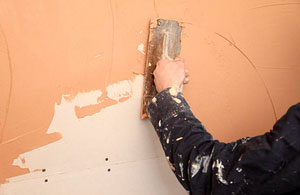 Plasterers Cross Roads
Plasterers Cross Roads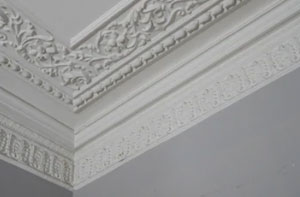 Plastering Near Cross Roads
Plastering Near Cross Roads Plasterer Cross Roads
Plasterer Cross RoadsPlastering Jobs Cross Roads: Get plastering jobs in Cross Roads here: Plastering Jobs Cross Roads
More West Yorkshire plasterers: Mirfield Plasterers, Dewsbury Plasterers, Brighouse Plasterers, Bradford Plasterers, Batley Plasterers, Leeds Plasterers, Bingley Plasterers, Pudsey Plasterers, Shipley Plasterers, Rothwell Plasterers, Liversedge Plasterers, Yeadon Plasterers, Holmfirth Plasterers, Ossett Plasterers, Halifax Plasterers, Huddersfield Plasterers, Keighley Plasterers, Normanton Plasterers, Horsforth Plasterers, Morley Plasterers, Wakefield Plasterers, Castleford Plasterers, Baildon Plasterers and Pontefract Plasterers.
Plaster Skimming Cross Roads - Plastering Cross Roads - Coving Cross Roads - Screeding Cross Roads - Plasterer Cross Roads - Plasterboarding Cross Roads - Rendering Cross Roads - Plasterers Cross Roads - Polished Plaster Cross Roads



